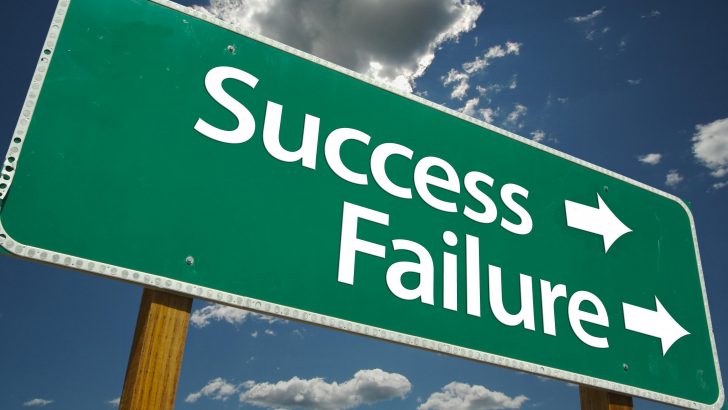We all make mistakes and we all experience failure. Failure is a painful experience and the conventional psychological advice is that we should not dwell on failure and we should try not to feel bad. However, new research just published by Noelle Nelson and others in the Journal of Behavioural Decision Making found that, when processing failure, feeling the pain of the failure leads to greater effort to not fail again in future than does simply thinking about what went wrong. Our emotional response to failure helps us more than simply thinking (cognitive response) about the failure.
Interviewed about the study, co-author Selin Malkoc said: “When faced with a failure it is better to focus on one’s emotions – when people concentrate on how they feel and how they don’t want to experience these feelings again, they are more likely to try harder next time.” On the other hand, people who simply reflect on a failure tend not to focus on ways to avoid a similar mistake again, mostly focusing on protecting their own ego and thinking, for example, how the failure wasn’t really their fault or how it wasn’t really such a big deal anyway. “If your thoughts are all about how to distance yourself from your failure, you’re not going to learn from your mistakes,” Malkoc said.
Response
Nelson and colleagues carried out several studies. In one, 98 college students were asked to search online for a particular type of blender, with the possibility of a cash prize for the finder of the lowest priced blender. Before they were told the result, half the students were told to concentrate on their emotional response to winning or losing and the other half were told to concentrate on their thoughts about how they did. The students were not aware that the experiment was rigged – each participant was told the lowest price was $3.27 less than what they found.
Each student was asked to write about how they felt about their failure. Students who thought about their failures wrote significantly more self-protective thoughts (e.g. “This wasn’t my fault) than self-improvement thoughts (e.g. “I know how I can do better next time”).
In the second half of the experiment the experimenters set out to find if the effort expended by the students in carrying out a new task would be related to whether they focused on emotions or thoughts regarding their previous failure. The new task was designed to be similar to the first task – a search for the lowest price – because the experimenters believed that a similar task would trigger the participants to recall their previous unsuccessful attempt whereas an unrelated to task would not.
Half the students were asked to search for a gift book for a friend that would best fit their small student budget, i.e. they were to search for the lowest price. The other half of the students were asked to search for a book that would be the best choice for their friend, i.e. a non-similar task to their first task.
The results showed that previous emotional responses to failure motivated the participants much more than cognitive responses when the students were faced with another similar task. Emotionally motivated students spent 25% more time searching for a lower-priced book than the students who did not dwell on the pain of their previous failure, but merely thought about the failure. On the other hand there was no significant difference between emotionally and cognitively motivated students when the second task (searching for the best book) was not like the first task (searching for the cheapest blender). People who focused on how bad they felt about their first failure tried harder than the others when they had another similar opportunity. But the new situation has to be similar to the first to trigger the pain of the first failure.
Malcok thinks that in most situations people probably experience both emotional and cognitive responses to failure. However, the important thing is not to avoid the emotional pain but to use it to fuel improvement. Emotional responses make you feel pain and that’s why many choose rather to think self-protective thoughts after failures. But if you focus more on the pain, you will work harder to ensure you don’t make the same mistake again.
All that said, it is also vitally important that, when you set out to achieve something, you set realistic goals for yourself. For example, if you have no ear for music there is no point in embarking on a rigorous training programme to become a professional pianist and then trying to use the pain of failing your exams to help you perform better in future. The power of feeling the pain of failure can only help you to achieve goals that are realistic.
Also, although Malkoc’s study didn’t examine this, thinking about how to improve from past mistakes can be helpful so long as you don’t focus on protecting your ego with self-statements like – “This failure was not my fault”. Thomas Edison is said to have failed 10,000 times when inventing the lightbulb. This didn’t bother him and he said “I have found 10,000 ways something won’t work – I am not discouraged because every wrong attempt discarded is another step forward”.
Samuel Beckett wrote extensively about how the human will to succeed is inevitably defied by an inherently hostile universe. Nevertheless his good humoured reaction was – “Ever tried. Ever failed. No matter. Try again. Fail again. Fail better.”
*William Reville is an Emeritus Professor of Biochemistry at UCC.


 William Reville
William Reville
